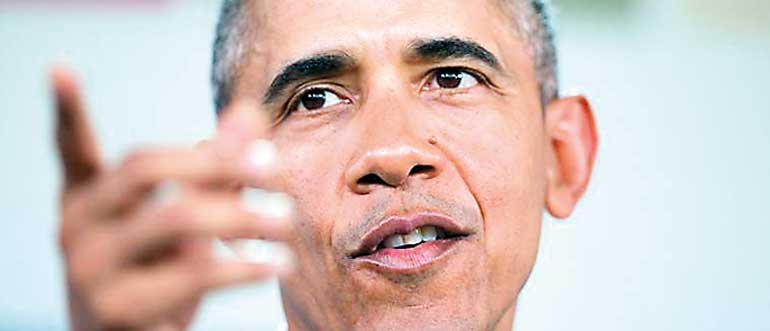Saturday Feb 28, 2026
Saturday Feb 28, 2026
Thursday, 18 February 2016 00:00 - - {{hitsCtrl.values.hits}}
 AFP (Rancho Mirage, California): President Barack Obama on Tuesday (16) called for “tangible steps” to reduce tensions in the South China Sea, after a two-day summit with Southeast Asian leaders concerned at Beijing’s military build-up.
AFP (Rancho Mirage, California): President Barack Obama on Tuesday (16) called for “tangible steps” to reduce tensions in the South China Sea, after a two-day summit with Southeast Asian leaders concerned at Beijing’s military build-up.
“We discussed the need for tangible steps in the South China Sea to lower tensions,” Obama said after the meeting, calling for “a halt to further reclamation, new construction and militarisation of disputed areas.”
China’s actions in the vital waterway featured heavily in talks at Sunnylands, a sprawling California desert retreat.
In a joint statement, Obama and the 10 ASEAN leaders demanded the “peaceful resolution” of a myriad of competing territorial claims over islands, atolls and reefs.
Obama has tried to muster an informal coalition of Pacific allies to demand that Beijing respect the rule of law, hoping that China will want to avoid being painted as a regional bully.
The next showdown could come when the UN’s Permanent Court of Arbitration decides in April or May whether China’s claim to a vast expanse of sea inside a “nine-dash line” has legal merit.
Leaders discussed a collective US-ASEAN endorsement of the court’s verdict - whatever the outcome - which would heap pressure on China, which refuses to recognise the court.
“Freedom of navigation must be upheld, and lawful commerce should not be impeded,” Obama said. “The United States will continue to fly, sail and operate wherever international law allows, and we will support the right of all countries to do the same.”
The White House had lauded the summit, and the prestigious venue, as an opportunity to champion Obama’s “pivot to Asia” and ASEAN’s growing importance, before the president leaves the White House in January 2017.
“As president, I’ve insisted that even as the United States confronts urgent threats around the world, our foreign policy also has to seize on new opportunities. And few regions present more opportunity in the 21st century than the Asia-Pacific,” Obama said.
“That’s why, early in my presidency, I decided that the United States, as a Pacific nation, would rebalance our foreign policy and play a larger and long-term role in the Asia-Pacific.” Obama announced a package of measures designed to boost Southeast Asian economies, betting that the fast-growing region can be an ever more important trade partner.
The plan will establish three economic offices –in Jakarta, Bangkok and Singapore – toboost the US government’s “economic engagement with ASEAN institutions,” officials said.